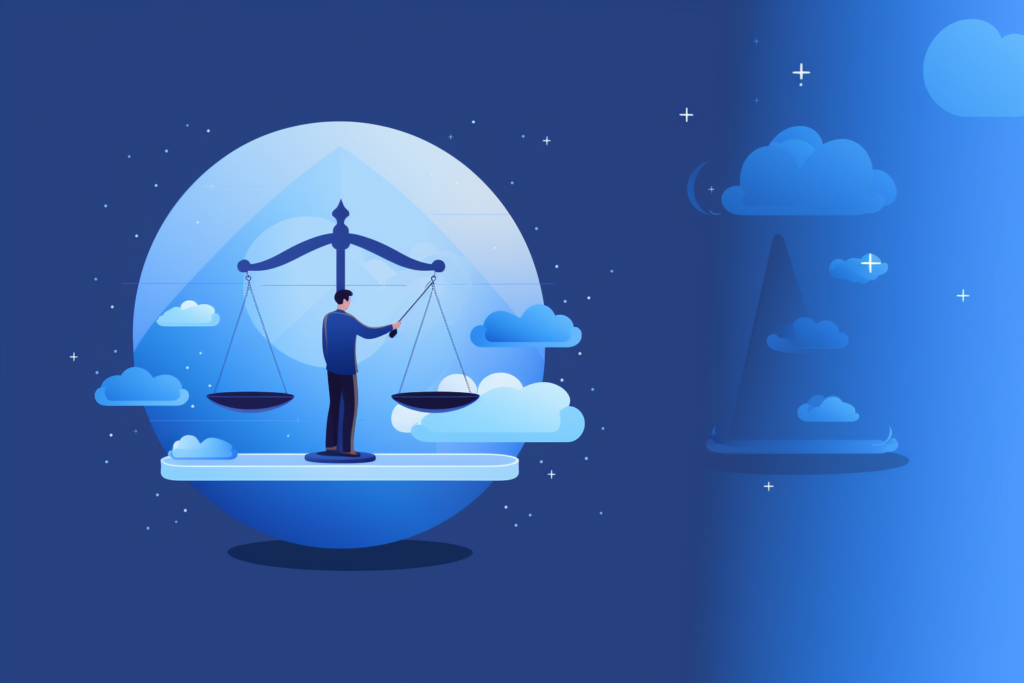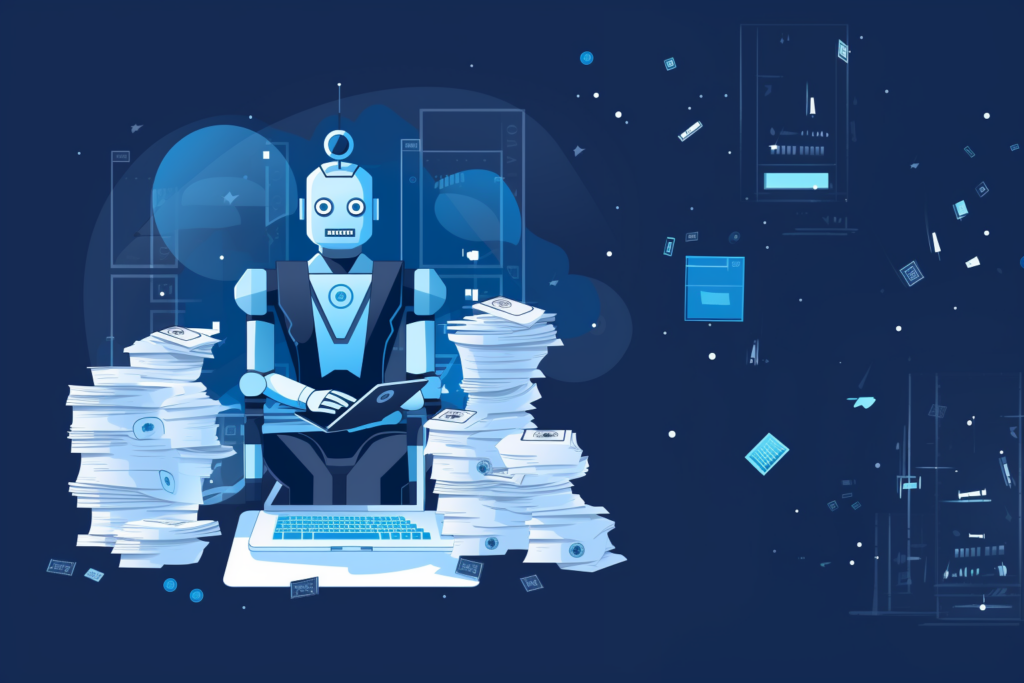Artificial Intelligence is a $184 billion industry reshaping the world as we know it (Statista, 2024). From healthcare breakthroughs to personalized marketing, AI’s potential is staggering. But here’s the catch: with great power comes even greater risk. In 2024 alone, biased AI algorithms cost companies millions in lawsuits, while 6 out of 10 consumers voiced concerns over privacy breaches tied to unchecked AI systems (Deloitte, 2023).
As we step into 2025, the stakes are higher than ever—get AI wrong, and you’re not just facing a glitch, but a trust crisis that could sink your business. This guide cuts through the noise, unpacking the ethics and safety of AI with practical steps to implement responsible solutions that protect your reputation and drive success.
What is AI Ethics?
AI ethics encompasses a set of rules, principles, techniques, and values that apply globally recognized criteria to guide ethical (moral) behavior in the development of AI technologies and their application. The concept arose from the need to address the dangers (societal and individual) that Artificial Intelligence may present. The harms are mostly involuntary and may occur as:
- Bias and discrimination
- Denial of autonomy and individual rights
- Non-transparent results
- Bad quality consequences
- Privacy intrusion
Bias and Discrimination
AI systems operate by gaining data and insights from the existing dynamics of a society and can reproduce and reinforce patterns of inequality, discrimination, and marginalization typical to that society. Since most AI techniques and algorithms are chosen and formed by system designers, they can replicate the designers’ biases.
Furthermore, samples used for training and testing algorithmic systems often represent the audience from which they draw conclusions. As one of the non-technical challenges, this can frequently lead to discriminatory and biased consequences.
Denial of Autonomy and Individual Rights
Human beings are subject to AI-produced predictions, decisions, and classifications. AI systems computerize cognitive functions previously attributable to human agents. This fact confuses responsibility appellation in AI-generated outcomes since the distributed character of AI systems’ design, production, and implementation makes it difficult to define responsible sides.

Non-transparent Results
Most Machine Learning models run on high-dimensional correlations beyond human-scale descriptive competencies to generate results. While occasionally, lack of explainability is acceptable, the processed data may have traces of bias, unfairness, discrimination, or inequity, which raises many AI ethics questions.
Bad Quality Consequences
Reckless data management and arguable deployment flows could cause organizations to implement and distribute AI-focused tools that produce bad-quality consequences. This hurts a person’s well-being (individual and public). Moreover, these harms undermine people’s trust in the responsible, reliable, safe, and beneficial use of AI technologies.
Privacy Intrusion
AI safety research proves that privacy threats posed by the artificial intelligence environment are formed at all three stages: system design, development, and deployment. AI tools are tied to ongoing data processing, and their development involves using personal data. Personal data may be retrieved without proper consent and handled in a way that discloses individual information. AI systems that target and obtain personal data without consent violate people’s ability to lead private lives. In the long run, this intrusion harms a person’s right to pursue life plans.
We’ve got the experience and expertise you need.
Artificial Intelligence ethics guidelines may mitigate the harms by introducing safety techniques and principles needed to design and develop fair, safe, and ethical AI apps.
Steps to Implementing Responsible AI
Convinced of the stakes—and the payoff? Building ethical, safe AI isn’t just a noble goal; it’s a practical roadmap to trust and growth. Here’s how to make responsible AI a reality in 2025, step by step.
1. Assemble a Diverse Team
AI reflects the people who build it. A team with varied backgrounds—gender, ethnicity, expertise—spots biases that homogenous groups miss. In 2025, companies with diverse AI teams reduced bias-related errors by 40%. Start here: diversity isn’t optional; it’s your first line of defense.
2. Define Clear Ethical Guidelines
Set principles upfront—think transparency, fairness, and privacy—and bake them into your AI’s DNA. Google’s AI Principles, launched in 2018 and refined yearly, offer a model: clear rules keep your team aligned and your AI accountable.
3. Audit Your Data Relentlessly
Garbage in, garbage out. Biased or incomplete datasets fuel unethical outcomes—like healthcare AI that misdiagnosed minority patients due to skewed inputs. Regularly scrub your data for fairness and accuracy to avoid costly missteps.
4. Test Early, Test Often
Don’t wait for deployment to find flaws. Simulate real-world scenarios—stress-test for bias, privacy leaks, and edge cases. For instance, fintech companies that catch a discriminatory loan algorithm pre-launch with rigorous testing, saving millions in reputational damage. Proactive testing is your safety net.
5. Prioritize Transparency
Users deserve to know how your AI ticks. Explain decisions in plain language—why did it reject a loan or flag a post? Clarity builds loyalty; opacity breeds skepticism.
6. Stay Ahead of Regulations
The rules are tightening—fast. The EU’s AI Act, effective 2025, fines non-compliant firms up to 7% of their global revenue. Monitor legal shifts and align your AI now. Compliance isn’t a burden; it’s a competitive advantage when done right.
7. Partner with Experts
You don’t have to go it alone. Collaborate with AI specialists who’ve tackled ethics and safety head-on. At LITSLINK, we’ve helped clients cut bias and boost user trust with tailored solutions. The right partner turns complexity into confidence.
These steps aren’t a one-and-done checklist—they’re an ongoing commitment. Start small, iterate, and watch responsible AI transform risks into rewards.
Responsible AI Safety Technology: The Challenges
There are two main challenges to implementing Artificial Intelligence safety and ethics:
- Lack of clear guidance and regulation
- AI systems complexity
Concrete problems in AI safety are related to the absence of a clear, responsible AI definition. They are diverse descriptions but no generally accepted standards for designing, developing, or using AI instruments. After GPT-3.5 and GPT-4 were introduced, the industry has seen an extensive array of new instruments: GPT-4 Turbo, Open AI’s New TTS, AI diagnostic tools, generative AI, AI in banking, and more. But there is no regulation body that can mark any of these AI use cases safe or ethical.
All of these AI systems are indeed complex, which means it’s hardly possible to detect any bias, guarantee accountability or transparency, or ensure user safety or privacy.
Despite the challenges, there’s a growing number of actual Artificial intelligence ethics case studies and a growing movement to promote responsible AI globally. 2025 is expected to become the year of the AI control revolution.
Pivotal 2022-2025: AI-related Bills and Regulation
2022 launched the phase of understanding Artificial Intelligence ethics and safety on a global level. The social influence became immense, making governments across geographies start acting. In 2022, AI ethics focused on upholding core values like:
- Ensuring fairness
- Enhancing accountability
- Promoting transparency
A 2023 Stanford University AI Index analysis of the legislative records of 127 countries shows that the number of bills containing “artificial intelligence” that were passed into law grew from just 1 in 2016 to 37 in 2022. The same year, Google, OpenAI, Meta, Microsoft, and the White House signed an agreement in which all the tech partners committed to investing in responsible AI.
In 2024, they extended the agreement, adding more technical companies and creating the Frontier Model Forum coalition to promote safe, responsible, and ethical AI systems.

AI ethics and governance are now on everyone’s minds. In October 2023, UK Prime Minister Rishi Sunak announced the establishment of the AI Safety Body, which will measure and check AI ethics principles across emerging tools.
Artificial Intelligence and ethics regulation have entered a decisive stage with progressive policies, laws, and frameworks for AI software development and project management. Following the UK example, the European Union has presented the AI Act as the world’s first exhaustive AI law. It may ban some AI uses and enforce obligations of high-risk systems and their developers. The Act demands full transparency and will enforce multimillion-dollar fines for violation.
Together, the AI Act and GDPR are expected to play a crucial role in the development of systems learning from colossal databases.
Alongside Europe and the US, some regions have started establishing preliminary normative frameworks for AI product management:
- China’s Shanghai passed the AI development law with respect to the private sector, while other provinces have federal AI governing regulations.
- Saudi Arabia enforced an intellectual property law that included chapters dedicated to AI and other modern technologies. The SDAIA introduced the 2.0 version of the AI Ethics Principles, including security, privacy, environmental and social well-being, fairness, and humanity.
- The UAE initiated its AI strategy and chose a Minister of State for AI.
- Brazil is working on its draft of the AI Law, outlining user rights regarding AI systems interaction and guidelines for classifying AI tools based on their risks.
In the End
Big inventions are prone to big risks. AI is no exception. It’s critical to anticipate consequences and use cases, reflect the underlying values and risks, and adapt the new technology by applying what has been learned generations before. Altogether, this allows for the preservation of ethics and safety in AI and even prioritizes them above technological advancements.
This topic may seem blurry and confusing, especially when the laws and acts are still under development. If you need more project-focused clarifications and are looking for a team with solid experience in AI projects, contact our representative and get comprehensive answers to all your questions.





